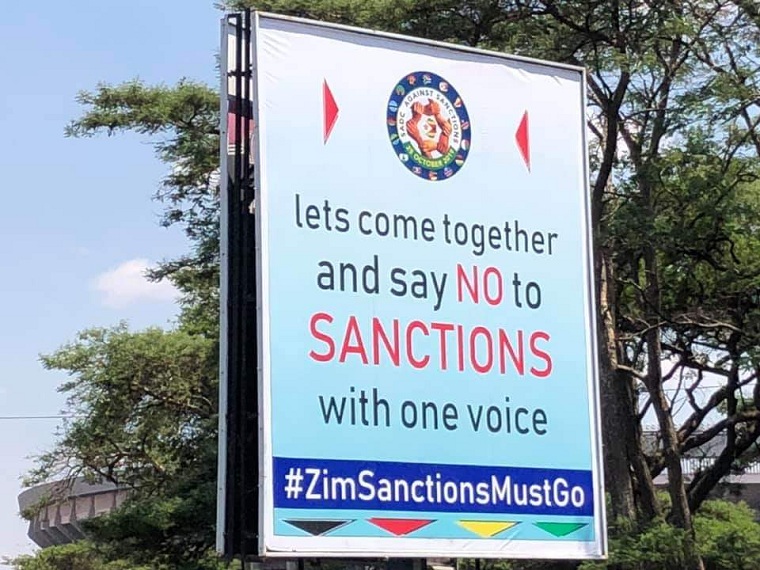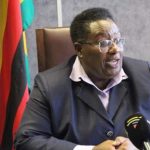 Sanctions imposed on Zimbabwe should be removed as they are grossly impacting Zimbabwe’s ability to fulfill international obligations such as the UN Sustainable Development Goals (SDGs), the African Union (AU) said yesterday.
Sanctions imposed on Zimbabwe should be removed as they are grossly impacting Zimbabwe’s ability to fulfill international obligations such as the UN Sustainable Development Goals (SDGs), the African Union (AU) said yesterday.
The European Union and the United States imposed sanctions on Zimbabwe two decades ago to force the government to re-think its land reform policy.
The land reforms involved compulsory acquisition of excess farmland from white farmers to resettle landless peasants.
The sanctions are estimated to have cost the economy nearly US$100 billion.
AU commission Deputy Chairperson Kwesi Quartey told delegates attending the 6th African Regional Forum on Sustainable Development in Victoria Falls that sanctions were a huge burden on Zimbabwe.
SDGs were adopted by all United Nations member states in 2015 and provide a shared blueprint for peace and prosperity for people and the planet.
The 17 SDGs are an urgent call for action by all countries – developed and developing – in a global partnership.
They recognize that ending poverty and other deprivations must go hand-in-hand with strategies that improve health and education, reduce inequality, and spur economic growth – all while tackling climate change and working to preserve our oceans and forests.
“For us to build the conditions to achieve these lofty ambitions, the AU has called for all the sanctions on this country we are in today to be lifted,” he said.
The AU and regional body, the Southern African Development Community have upped pressure on western countries to lift the illegal embargo they placed on Zimbabwe.
Meanwhile, Quartey said more efforts should be re-doubled to ensure effective implementation of the SDGs by 2030.
“2030 is no longer a distance away, 2030 is already upon us so we do not have time anymore and we have to work together closely and consistently,” he said.
He said ensuring peace on the continent was also a pre-requisite for attaining the 2030 UN and 2063 AU development agendas.
“We are caught up with the fierce urgency of now, time waits for no man even more-so for our women and children who continue to suffer from the absence of peace,” he said.
“As indicated in the AU theme of the year, the most vulnerable groups are women and our children who bear the brunt of all the ill effects of armed conflicts they have nothing to do with.
“Our women and girls continue to suffer disproportionately from gender based violence and all the abuses and violations of their human rights in armed conflicts.”
He added: “It is fair to say the armed conflicts are the biggest challenge for the successful implementation of our agenda 2063.”
Education, Quartey said, was also key to ending conflicts in Africa.
“We need to inculcate a culture of peace and tolerance at the very basics of our children and youth because through true education our children begin to see what is important in the world and become less likely to be taken by the machinations and fantasies of fanatics of religion,” he said.
UN deputy secretary general Amina Mohammed said the AU agenda 2063 and the 2020 AU theme, “silencing the guns” created conducive conditions for Africa’s development.
“I appreciate and deeply value the tremendous work that has been done and the productive relationship between the UN and the AU and its building blocs, the regional economic communities which provide us a great opportunity to jointly implement and track our progress, ” she said.-New Ziana
(81 VIEWS)

